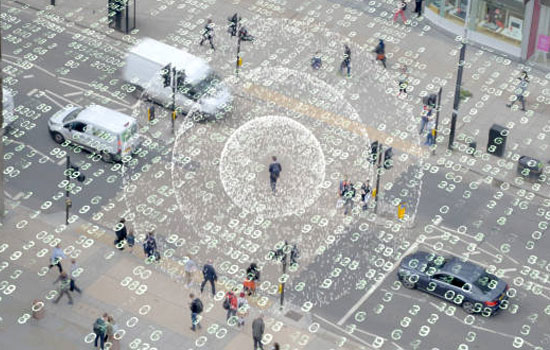It is impossible to use the Internet, even for the most rudimentary of activities like e-mail without leaving traces, “Digital Footprints”. Much larger footprints are left when using other online services like social media and web browsing.
Whether you intentionally share information or not, it is being collected and examined by others. It is becoming increasingly important to manage your digital footprint since it can be used in both positive and negative ways. Digital Footprints – A definition.
A short definition is that it is anything about you that you or others put online. It is an increasingly broad definition. It’s not just what you put online, such as sharing an image or sending an email, it is more passive activities that happen without you necessarily knowing.
Digital Footprints can be active or passive. Passive ones don’t necessarily link an individual and an activity but can be analysed to detect trends, for example, website statistics showing the number of visits.
Active footprints on the other hand connect activity and an individual.
IT Security is very concerned about Digital Footprints and recommends that you should be very vigilant about managing yours.
Digital Footprints – What They are Used For

This should worry you. It does worry IT Security.
Your digital footprint can be used to find out personal information about you. That can extend to religion, political affiliations, employment and social activities. It is often collected by using cookies which maintain a track of your activity on the website. Other organisations actively search for personal information by trawling websites on the surface web and dark websites.
At the most innocuous and irritating, advertisers use your digital footprint to deliver personalised advertisements on websites and emails and adjust your search engine results. Google has Google Adwords, an entity that generates income for Google by doing exactly that.
Employers now routinely carry out an online background check on current and prospective employees. There have been cases where employees have been disciplined or dismissed for posting “inappropriate” material on websites, blogs, and social media. It is also widely suspected in the recruitment industry that employers have dropped candidates and withdrawn job offers following an adverse background check.
Worldwide, law enforcement and other government security agencies use footprints to gather information that they might not otherwise be permitted to collect without legal cause.
Digital Footprints and Privacy

The advertising and employment use of footprints are only scratching the surface. IT Security has begun to define digital footprints as part of the creation of a lifestream. This is a grouping of data that, taken together, becomes digital tracing data that includes individual information such as interests, social groups, location, political affiliation, and behaviours.
The creation of lifestreams is giving rise to serious concerns around personal privacy. Particularly when it is an indiscriminate unvetted gathering of information about individual life and behaviour. Areas under current investigation in the EU and US are Facebook-influenced creditworthiness assessments, and some incidents involving individuals where there is a clear violation of existing privacy law.
Linking lifestream information with sophisticated data mining and analysis software gives rise to other serious privacy concerns. For example, about the validity of the democratic process. There is widespread evidence that in both the Brexit referendum in the UK and the Trump election in 2016 in the US, individual voters were targeted and the results influenced following online collection and analysis of personal information.
Digital Footprints – Minimising Negative Effects

Before you throw your arms up in horror and switch off from the Internet completely, there are things that you can do to minimise the negative aspects and maximise the positive aspects of digital footprints.
-
First, deleting your accounts doesn’t do anything. The information has already been collected, and deleting it from your world won’t remove it from everywhere it exists. Besides, information about you is held by others that could be needed in the future, for example, academic results from schools and colleges.
-
Google yourself. See what is out there and available publically. Regularly, check and massage your profile information to remove anything you don’t want immediately seen or is held in the public domain.
-
Use alerts. Set up Google and other alerts on your name to let you know when your name crops up on Social Media.
-
Minimise personal information on websites as possible. Perhaps use a nickname.
-
Take your time before posting.
The important point is to slow down. Today, people rush to the keyboard when they want to say something and post in haste and emotion. Before email and social media, you needed to find a pen and paper, an envelope, and a stamp before writing a letter. Then walk to the postbox. That gave time to consider an appropriate response, which might be no response at all. Think before you post, and you might not regret it in a few years.


